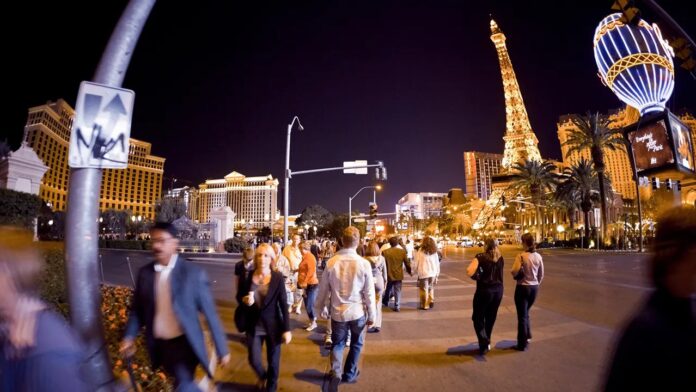The Price of Pleasure: Is Las Vegas Pricing Itself Out of the Market?
Las Vegas, often dubbed the Entertainment Capital of the World, has been facing a challenging paradox—while its glitzy casinos and luxurious experiences draw millions, the escalating prices within the city are triggering a wave of concern among business operators and tourists alike. In a recent conversation with Fox News Digital, Derek Stevens, CEO of Circa Resort & Casino, highlighted a crucial narrative: that Sin City may be “pricing itself out” of the consumer market.
Changing Tourism Landscape
This summer, the Las Vegas Convention and Visitors Authority (LVCVA) revealed a notable decline in tourism—a phenomenon that has prompted discussions about underlying factors affecting visitor numbers. The president of LVCVA, Steve Hill, pointed to tariffs and changing international relations as culprits, specifically citing a marked drop in Canadian visitors. These external variables have compounded existing challenges that the city is currently facing.
High Prices as a Deterrent
Amidst these changing dynamics, one cannot ignore the stark reality that many visitors lament the rising costs within Vegas. Dining prices, once perceived as a bargain, have crept upwards, leading some to question the affordability of one of America’s premier vacation destinations. “Getting a steak in Las Vegas is not as inexpensive as it used to be,” Stevens noted, pointing out that the days of cheap buffets may soon be relegated to history.
Stevens stated that the culinary scene is rapidly evolving, reflecting broader trends in consumer preferences and dining habits. Many visitors now seek a varied dining experience that goes beyond traditional fare. As restaurants compete for attention, they must not only cater to tourist whims but also adapt to changing expectations surrounding quality and price.
Evolving Dining Habits
Interestingly, Stevens observed that while tourists are now “a bit more adventurous at lunch,” convenience remains a priority. He emphasized, “And for dinner, you’re competing against the entire city—everybody’s trying to go to the new hotspot.” As dining experiences increasingly align with diverse tastes and adventurous spirit, establishments must be agile in their strategies to retain patron interest.
To adapt, Circa Resort offers 11 dining venues ranging from bars to upscale restaurants. According to Stevens, travelers are inclined to enjoy meals where they stay, challenging establishments to provide attractive and varied options.
Union Contracts and Operational Costs
Another contributing factor to rising prices is the recent agreements made by the Culinary Workers Union, representing a significant workforce segment in Las Vegas. With contracts that signal increased operational costs for major casinos, experts warn that if these price hikes continue, they might lead to detrimental effects on job availability and working hours. Furthermore, many argue that the tipping income tax exemption under former President Trump’s administration doesn’t mitigate issues if workers aren’t earning enough tips.
Guest Reactions to Pricing Strategies
The ongoing conversation regarding challenges in the hospitality sector is punctuated by guest reactions to steep costs. As costs for items like bottled water and cocktails soar, visitors are growing weary of exorbitant pricing strategies. As noted by a hospitality consultant, guests are increasingly “pushing back on $18 bottles of water and $37 martinis,” reflecting a broader dissatisfaction that could influence future tourism.
Reinventing the Vegas Experience
Despite the tumultuous environment, Stevens remains cautiously optimistic. He emphasized that the situation isn’t insurmountable, stating, “It’s not as if the sky is falling.” His approach includes introducing more budget-friendly packages to attract a wider demographic and reinforce Vegas as an appealing destination for diverse travelers.
The sentiment reflects an understanding that Las Vegas is constantly evolving. As the tourism sector grapples with rising costs, operators are compelled to rethink and innovate in ways that cater to both new visitors and returning patrons.
Conclusion: The Las Vegas Paradox
The dichotomy between luxurious experiences and rising prices encapsulates the current state of Las Vegas. As the landscape continues to shift, understanding the complexities of consumer behavior and market expectations will be paramount for nurturing a thriving tourism environment. Whether through strategic adaptations in pricing, varied dining experiences, or understanding different visitor sentiments, the future may hold new opportunities for Las Vegas to maintain its iconic status as a must-visit destination.
